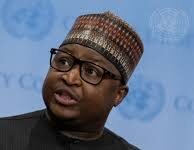By Amin Kef Sesay
In a landmark decision, the Supreme Court of Sierra Leone, led by Acting Chief Justice Hon. Justice Nicholas C. Browne-Marke, ruled on Wednesday, July 17, 2024, that the appointment of Mohamed Konneh as Chief Electoral Commissioner of the Electoral Commission of Sierra Leone (ECSL) is constitutional and does not violate any provisions of the 1991 Constitution.
The ruling, delivered by a unanimous panel of four justices, emphasized the importance of interpreting the Constitution in its entirety rather than selectively. “The Constitution must be read as a whole, and not in bits, cherry-picking provisions which, on their own, may appear to support one view or the other. To do so would result in absurdity,” stated Acting Chief Justice Browne-Marke.
The Justices on the panel included Hon. Chief Justice Nicholas C. Browne-Marke (JSC), Hon. Justice M. F. Deen-Tarawally (JSC), Hon. Justice Alusine S. Sesay (JSC), and Hon. Justice Ansumana Ivan Sesay (JA). They dismissed the case brought by plaintiffs, Charles Francis Margai, representing Patrick John and the People’s Movement for Democratic Change (PMDC), against Mohamed Konneh, the ECSL, and the Attorney General and Minister of Justice.
The plaintiffs argued that Mohamed Konneh’s appointment while serving as the Director of the Financial Intelligence Unit (FIU) violated Sections 32(3) and (4), 75(c), 76(1)(b), and 171(1) and (4) of the 1991 Constitution. Additionally, they claimed that the ECSL failed to allocate campaign dates for all presidential candidates, including the PMDC candidate, as required by Sections 154 and 155 of Act No. 17 of 2022, thereby infringing on the party’s campaign rights.
In addressing the legitimacy of Mohamed Konneh’s appointment, the court clarified that Section 32(4) of the 1991 Constitution pertains to the qualifications for Electoral Commissioners, Members of Parliament or Ministers. The Acting Chief Justice pointed out that Mohamed Konneh was not a Member of Parliament at the time of his appointment and would have been required to resign 12 months before an election had he intended to contest for a parliamentary seat. However, this requirement does not apply to his role as Director of the FIU.
Another key aspect of the case involved an application by Charles Margai requesting the recusal of Chief Justice Edwards and Justice Ansumana Ivan Sesay (JA) due to their involvement in administering the presidential oath and their positions within the judiciary. The court found no legal basis for these recusal requests, citing specific constitutional provisions that authorize the Chief Justice to administer the presidential oath and confirm the participation of Supreme Court Justices in such matters.
Counsel for the Defense, including B. E. Cummings, Dr. E. S. Abdulai, T. J. Mansaray and A. B. Mansaray, argued for the dismissal of the plaintiffs’ case, describing it as fundamentally flawed and lacking factual particulars as required by the Supreme Court Rules of 1982. The court concurred, affirming the legality of Mohamed Konneh’s appointment and upholding the integrity of the electoral process in Sierra Leone.




